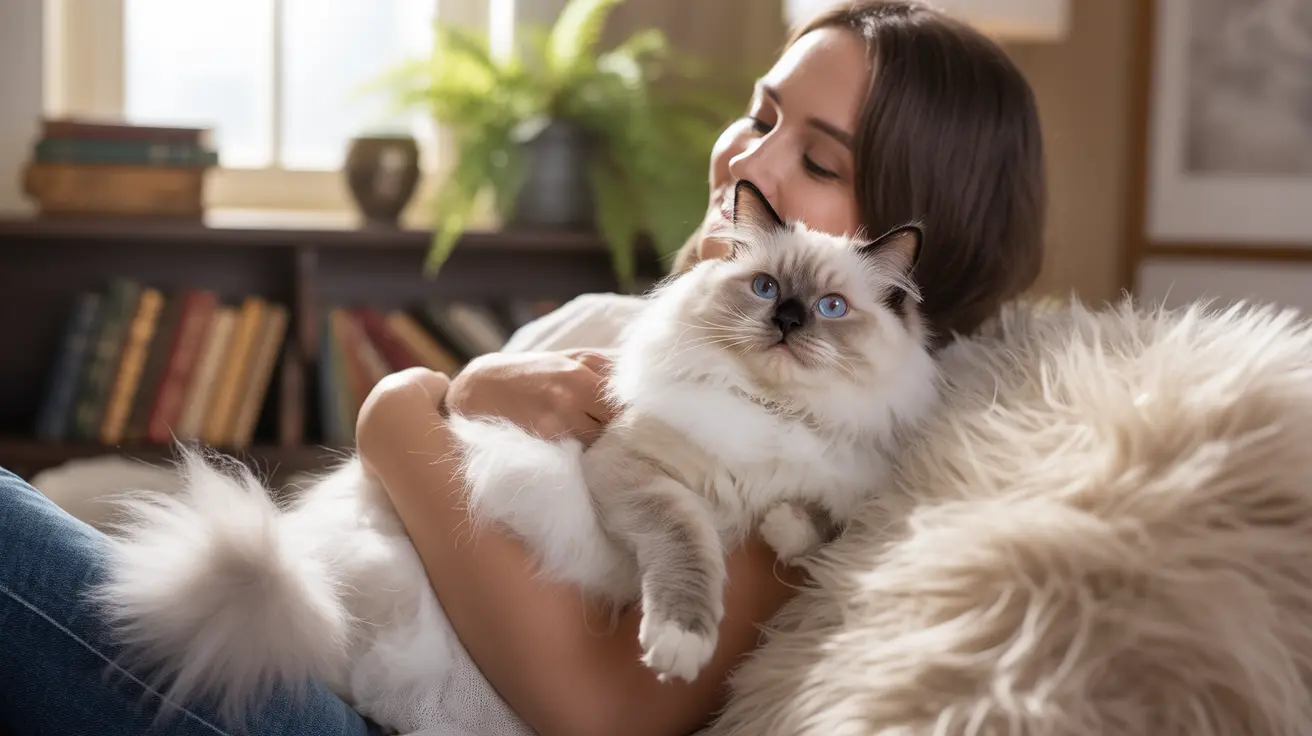Have you noticed your male cat becoming unusually clingy or affectionate lately? This sudden change in behavior can be both endearing and concerning for pet owners. While increased affection might seem purely positive, understanding the underlying reasons for this behavioral shift is crucial for ensuring your cat's wellbeing.
Let's explore the various factors that could explain why your male cat has become more affectionate and when these changes might warrant attention from a veterinarian.
Common Reasons for Sudden Affection in Male Cats
Environmental Changes and Stress
Male cats often respond to changes in their environment by seeking more attention from their owners. This could include moving to a new home, rearranging furniture, or introducing new family members or pets. Your cat might be looking for reassurance and security during these transitions.
Physical Needs and Comfort
Sometimes, increased affection has practical motivations. Your cat might be seeking warmth during colder weather, or they could be hungry and have learned that being affectionate often leads to feeding time. Many cats become especially loving right before their regular meal times.
Health-Related Causes of Increased Affection
Medical Conditions
Certain health issues can cause male cats to become more affectionate. Conditions like hyperthyroidism, diabetes, or high blood pressure might manifest through behavioral changes. Senior cats with cognitive dysfunction may also become clingier as they age.
Hormonal Changes
Unneutered male cats might experience hormonal fluctuations that affect their behavior. Even neutered cats can show periodic changes in affection levels due to residual hormonal influences.
Emotional and Social Factors
Attention-Seeking Behavior
Cats are intelligent creatures that quickly learn which behaviors earn them attention. If your male cat has discovered that being affectionate results in more playtime, treats, or pets, they're likely to repeat this behavior.
Separation Anxiety
Male cats can develop separation anxiety, especially after extended periods alone or changes in their owner's schedule. This might manifest as extreme affection when you're home, following you around, or becoming vocal when you prepare to leave.
When to Be Concerned
While increased affection isn't necessarily problematic, certain situations warrant veterinary attention. Watch for these red flags:
- Sudden behavioral changes accompanied by physical symptoms
- Excessive vocalization or restlessness
- Changes in appetite or water consumption
- Unusual litter box habits
- Lethargy or decreased activity levels
Frequently Asked Questions
Why is my male cat suddenly more affectionate than usual?
Your male cat's increased affection could stem from various factors, including environmental changes, seeking attention or food, temperature changes, or potential health issues. Monitor for any additional behavioral changes that might indicate an underlying concern.
Could my male cat's sudden clinginess be a sign of health problems?
Yes, sudden clinginess can sometimes indicate health issues, particularly in older cats. Conditions like hyperthyroidism, diabetes, or cognitive dysfunction can cause increased affection. If accompanied by other behavioral changes, consult your veterinarian.
How can changes in the household cause my male cat to become more affectionate?
Cats are sensitive to environmental changes. New furniture, family members, pets, or moving homes can cause stress or anxiety, leading your cat to seek more reassurance and comfort through increased affection.
Is increased affection from my male cat related to boredom or seeking attention?
Yes, cats often become more affectionate when they're understimulated or seeking interaction. Ensuring regular playtime and environmental enrichment can help address these needs.
When should I be concerned and take my suddenly affectionate male cat to the vet?
Consider veterinary care if the increased affection occurs alongside changes in eating, drinking, elimination habits, vocalization, or activity levels, or if your cat shows signs of distress or discomfort.
Understanding why your male cat has become more affectionate helps you respond appropriately to their needs. While enjoying these extra cuddles, stay attentive to any concerning changes in their behavior or health. When in doubt, consulting with your veterinarian can provide peace of mind and ensure your cat's wellbeing.






